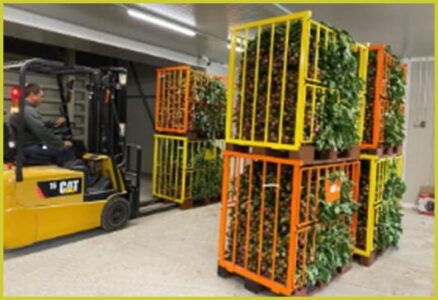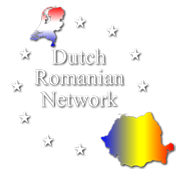
Meet Peter Rottier: Arable farmer in Romania
As you may have noticed, the perceived differences between Romania and the Netherlands are also a popular topic of conversation in my private life. Especially in conversations with other entrepreneurs in our small Dutch/Belgian community in Craiova. This gave me the idea to occasionally highlight in Post Craiova the perspectives of other Dutch and Belgian entrepreneurs operating in the same region.
This time we hear from an entrepreneur from a completely different sector than ours, but a pioneer nonetheless. Peter Rottier has been running an arable farm in Romania since 2015, managing a whopping 4,200 hectares of farmland. That’s a lot. The average farm size in the Netherlands is 30 to 40 hectares, and in Romania it is only 2.8 hectares. This is because agriculture here is generally still very small-scale and fragmented, a relic of days gone by.
 Peter has built a thriving company from nothing in ten years, with 57 employees and constant technological innovation at its core.
Peter has built a thriving company from nothing in ten years, with 57 employees and constant technological innovation at its core.
In my opinion, he practices what I call “common sense” entrepreneurship. Step by step, he continuously tries to optimize and use the available resources as efficiently as possible. This is certainly not a given for Dutch entrepreneurs in Romania, but at the same time it is a huge advantage: Peter speaks fluent Romanian.
Peter says, “Being able to start this business is a dream come true. I always had the ambition to become a farmer and grow crops; my whole education and career were focused on that. The Netherlands offers a great base of knowledge, technology, logistics and markets.
But starting a farm from scratch is almost impossible financially. So moving abroad is really the only option.”
Romania came my way through an entrepreneur who was looking for someone with knowledge of plant cultivation. Well, I got that. This partner was ultimately not interested in working in the Romanian countryside, but I thought: it’s now or never.
Together with a Belgian family, I was able to take over a grain farm. Grain is an easy crop to grow and the soil in the Craiova region turned out to be very good and suitable even for several other crops. Since 2019, we started growing peonies on a few hectares. Thanks to our market in the Netherlands, we were able to scale up considerably within a few years. I have invested in things like harvest belts, cold stores, etc., and in training skilled permanent employees, who are now real product specialists. Because we want to retain their knowledge and make the best use of the technical resources we have invested in, we also started growing rose hips, which are used as ornamental plants in the flower trade. Through clever spreading with different crops, we are now active almost all year round. What I love about Romanian employees is that they really go for it. They are loyal and flexible, and they don’t mind working a few extra hours. Of course, as an employer, you also have to be willing to bend a little with them sometimes. That is perhaps the biggest contrast with the Netherlands, where everything is laid down to the minute in rules and procedures. 
In a relatively short time, Peter, like me, has seen Romania change considerably. He tells how he has experienced it: “What I really like is that the development of our company actually runs parallel to the development of the country. We started all over again and got it right from the beginning, investing in the latest technology, without being hampered by the need to replace old technology. You see the same trend throughout Romania, especially in the cities. When I moved to Romania, people in the Netherlands wished me success.
Now, when I get visitors, they often don’t notice any difference between Craiova and other big cities in Western Europe. Especially the younger generation is not much different in attitude and mentality from their peers throughout Europe.” Peter’s story demonstrates once again that doing business in Romania is much less exotic than it first appears, and the differences are rapidly shrinking. The professionalization and scaling up of the Romanian countryside is in full swing, largely thanks to the tireless efforts of people like Peter Rottier and the approximately 3,500 Dutch entrepreneurs who, together with him, operate in Romania.
